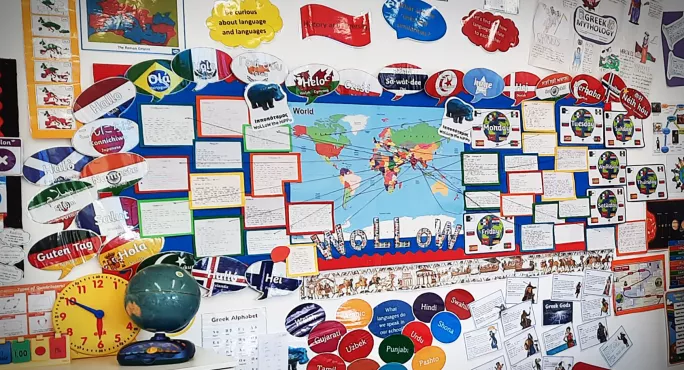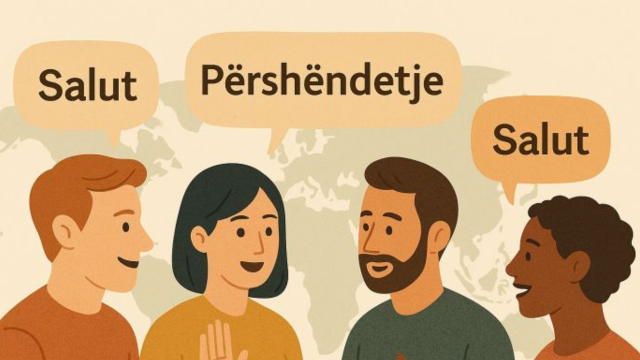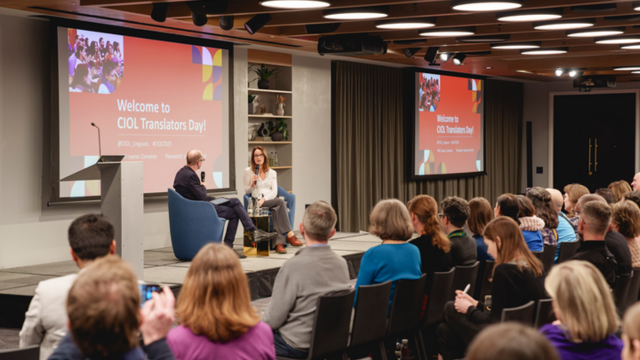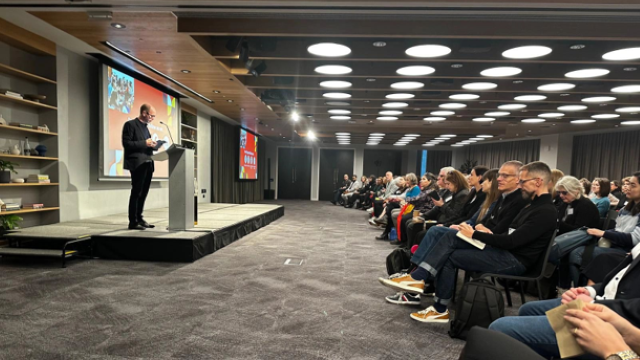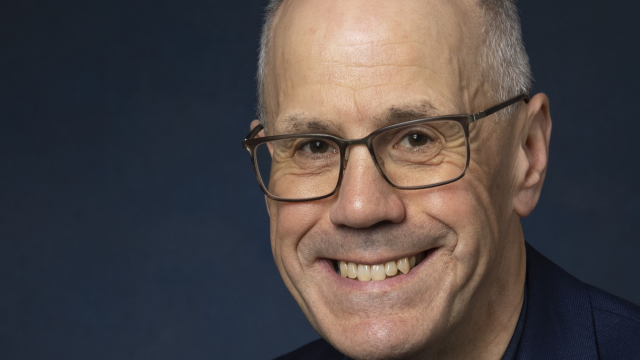-
QUALIFICATIONS
- For Linguists Worldwide
- For UK Public Services
- Preparation
- Policies & Regulation
-
MEMBERSHIP
- Join CIOL
- Membership grades
- NEW for Language Lovers
- Chartered Linguist
- Already a member?
- Professional conduct
- Business & Corporate Partners
-
ASSESSMENTS
- For Second Language Speakers
- English as a Second Language
-
EVENTS & TRAINING
- CPD, Webinars & Training
- CIOL Conference Season 2025
- Events & Networks
- CIOL Mentoring
-
NEWS & VOICES
- News & Voices
- CIOL eNews
- CIOL Awards
- The Linguist
- Jobs & Ads
-
RESOURCES
- For Translators & Interpreters
- For Universities & Students
- Standards & Norms
- CIOL & AI
- All Party Parliamentary Group
- In the UK
- UK Public Services
- Find-a-Linguist
Languages: Recognising ourselves and others
Recent CIOL Voice’s contributor John Claughton, who is former chief master of King Edward’s School, Birmingham, and co-founder of WoLLoW (World of Languages, Languages of the World) has written a powerful article in the TES Magazine. Some of his key points are here:
Languages are squeezed out in UK schools
In a land dominated by literacy and numeracy, there is too little time or space or regard given to the teaching of languages. It’s no one’s fault but, too often, teachers lack linguistic knowledge or confidence, and it’s no fun teaching things that you don’t know yourself. Nor is it easy, or cheap, to import expertise.
Feedback from schools certainly confirms what we all know: you aren’t going to get very far in a language on 40 minutes a week. Finally, it doesn’t help that the provision of the national curriculum is so vague: “Teaching may be of any modern or ancient foreign language and should focus on enabling pupils to make substantial progress in one language.”
Teaching a language or teaching about languages?
Why don’t we teach in primary schools not a language but about languages - how they work, how they are related, how they link not only to all other school subjects but also to culture and religion, to migration and empire, to identity and belonging?
In so doing, we might even convince pupils that languages are not only relevant but also a code-breaking game, even fun.
What’s more, today’s pupils in today’s UK primary schools should be prime candidates for such an approach: more than 20 per cent of primary pupils are categorised as having English as an additional language (EAL) and in many urban primary schools there are as many as 50 languages spoken.
With this approach, pupils can find their voices and become teachers, and the teachers can learn from their pupils.
Can it be done?
Is this possible? Yes - I know it is. For the past six years I have been working with fellow teachers on a languages programme that does all of the above. It’s called WoLLoW (World of Languages, Languages of the World) and the aim is to inspire young children to learn and love languages.
It’s free and hundreds of schools already use it, with resources that include focusing on pupils’ own multilingualism, on Greek and why physics isn’t spelt fisiks, on days of the week in different languages or why Punjab means “five waters”. Feedback has been hugely positive - perhaps my favourite testimonial was a teacher who said, “The pupils opened up like flowers.”
However, the provision of languages in primary schools is not about WoLLoW or other similar projects, nor even just about languages. It relates to other major issues in the very nature of our society.
Recognising ourselves and others
Language teaching can play its part on the road to a world where pupils have a voice in any language; where their language and culture and history are valued, not alien; where boys and girls get to know themselves and their peers; where they can learn that, in an increasingly multicultural and multilingual society, we can all get on together.
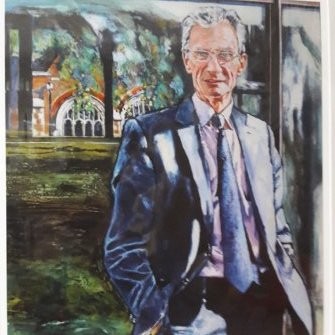
John Claughton is former chief master of King Edward’s School, Birmingham, and co-founder of WoLLoW (World of Languages, Languages of the World)
Views expressed on CIOL Voices are those of the writer and may not represent those of the wider membership or CIOL.
Filter by category
More
The Chartered Institute of Linguists (CIOL), Incorporated by Royal Charter, Registered in England and Wales Number RC 000808 and the IoL Educational Trust (IoLET), trading as CIOL Qualifications, Company limited by Guarantee, Registered in England and Wales Number 04297497 and Registered Charity Number 1090263. CIOL is a not-for-profit organisation.

